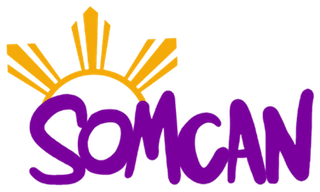San Francisco & State Emergency Rental Assistance Program
Emergency Rental Assistance Application
FAQs
+ Am I Eligible for help?
You may be eligible if you are a San Francisco resident who has unpaid rent or utilities, AND has experienced financial hardship related to the COVID-19 pandemic, AND has a household income that is at or below 80% of Area Median Income (AMI).
In addition to the above basic requirements for eligibility, both the state and local program then prioritize some applicants for help:
- State Program: first priority is households at or below 50% of Area Median Income (AMI) or with nine or more months of unpaid rent. The next priority is applicants in communities disproportionately impacted by COVID-19. All other applicants will be processed based on available remaining funding.
- Local Program: applications are prioritized based upon risk of displacement or homelessness, with measures including past homelessness, extremely low income, family composition and other factors. Only those that meet the program’s vulnerability threshold are selected for financial assistance.
+ How muck help can I get?
- The amount of assistance under the State Program depends on how your landlord responds. After you submit an application, the State will contact your landlord and ask them to agree to waive 20% of the unpaid rent from April 2020-March 2021. If they agree, the State Program will pay your landlord the remaining 80% of unpaid rent and you will not owe anything from that period. If the landlord doesn’t agree, the State Program will pay you 25% of unpaid rent from that period.
- If you qualify the City Program will pay up to 3 months back rent owed and 3 months forward rent. For example, if your application is approved in June 2021, then the City Program will provide rental assistance for April-June (back rent) and July-September (forward rent).
Remember that even if you do not get enough help to pay off all of your rent debt, emergency eviction protections may still protect you.
+ Can I apply for both programs?
Yes. The State Program covers rent owed from April 2020 through March 2021. The City Program covers April 2021 and forward. Since the programs focus on different time periods and have different priorities, it may be wise to do so. If you do apply to both programs you cannot receive assistance for months for which you have already received assistance.
+ Does my immigration status matter?
No. You will not be asked about immigration status. Help from this program also does not qualify as a “public charge” that can affect those applying for a green card. Learn more about eligibility for various public programs based on immigration status here.
+ What if I don't have pay stubs or other documents showing decreased income or increased expenses?
It is not necessary to have documents to prove income or expenses. A tenant counselor can assist you with the appropriate forms.
+ I rent from a master tenet and not directly from the landlord. Am I eligible from help?
The State Program requires subtenants to apply along with the master tenant on the same application. The City Program works with subtenants even without the involvement of the master tenant.
+ I live with roommates. Can we apply separately for help?
You should apply separately to the City Program, but must apply together to the State Program as one household.
+ The unit I rent might not have been built with permits. Will the city send inspectors if I apply for assistance?
You can apply and be eligible for rental assistance regardless of whether your housing was built with permits. The information you provide will not be used for other purposes.
+ Can I apply for assistance if I live in City or Federally subsidized housing?
Yes
+ What if I borrowed money and don't owe any rent?
You are only eligible for help from the State Program if you owe rent for the period between April 2020 and March 2021. The City Program will help with future rent payments eligible applicants even if you do not owe back rent.
+ Can I get help with rent debt even if I had to move?
Currently, you are only eligible for help if you still live at the address where you owe rent. This could change in the future.
+ My landlord says that they will apply for me. Is that allowed?What if I want to apply on my own?
State Program: Either the landlord or the tenant may start the process. But ultimately tenants will need to complete their own application. Tenants do not have to provide their personal information/documents to the landlord because they can provide it directly to the program.
City Program: Only tenants may apply. Landlords will be asked to provide a W9 or information like the amount of unpaid rent. If your landlord or master tenant won’t cooperate with the Program, you are still eligible for assistance.
+ These programs do not work for me but I still owe rent that i cannot pay, what can I do?
We know these programs are not enough, and too often work to subsidize a system that was already broken. Tenants, organized labor and other organizations across the state are fighting to extend eviction protections and expand the existing rent relief programs. In addition, new federal relief funds should arrive in the coming months. For updates follow us on Facebook.
